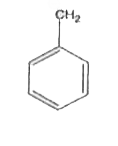Which of the following is least thermally stable ?
MgCO3
CaCO3
SrCO3
BeCO3
The correct Answer is:D
To determine which of the given carbonates is least thermally stable, we need to analyze the factors affecting the thermal stability of metal carbonates. The thermal stability of a carbonate generally depends on the size and charge of the metal cation, as well as its polarizing ability.
1. Understand Thermal Stability:
- Thermal stability refers to the ability of a compound to withstand heat without decomposing. For carbonates, this means how readily they can decompose into metal oxides and carbon dioxide (CO2) when heated.
2. Identify Factors Affecting Stability:
- The stability of metal carbonates can be influenced by the size and charge of the metal cation. Smaller cations with higher charges have greater polarizing power, which can destabilize the carbonate ion (CO3^2-).
3. Analyze the Cations:
- Consider the cations in the carbonates being compared. For example, if we are comparing beryllium (Be^2+) with other alkaline earth metals like magnesium (Mg^2+) or calcium (Ca^2+):
- Beryllium (Be^2+) is smaller in size and has a higher charge density compared to magnesium and calcium.
4. Evaluate Polarizing Ability:
- The polarizing ability of a cation increases with its charge and decreases with its size. Beryllium, being small and having a +2 charge, has a high polarizing ability. This means it can distort the electron cloud of the carbonate ion significantly, leading to its decomposition.
5. Determine Decomposition Products:
- When a carbonate decomposes, it typically forms a metal oxide and carbon dioxide (CO2). The more polarizing the cation, the more likely it is to decompose the carbonate.
6. Conclude on Stability:
- Since beryllium carbonate (BeCO3) has a high polarizing ability due to the small size and high charge density of Be^2+, it is the least thermally stable among the carbonates being compared. It can easily decompose to form beryllium oxide (BeO) and CO2.
7. Final Answer:
- Therefore, the least thermally stable carbonate is BeCO3 (beryllium carbonate).
- Thermal stability refers to the ability of a compound to withstand heat without decomposing. For carbonates, this means how readily they can decompose into metal oxides and carbon dioxide (CO2) when heated.
- The stability of metal carbonates can be influenced by the size and charge of the metal cation. Smaller cations with higher charges have greater polarizing power, which can destabilize the carbonate ion (CO3^2-).
- Consider the cations in the carbonates being compared. For example, if we are comparing beryllium (Be^2+) with other alkaline earth metals like magnesium (Mg^2+) or calcium (Ca^2+):
- Beryllium (Be^2+) is smaller in size and has a higher charge density compared to magnesium and calcium.
- The polarizing ability of a cation increases with its charge and decreases with its size. Beryllium, being small and having a +2 charge, has a high polarizing ability. This means it can distort the electron cloud of the carbonate ion significantly, leading to its decomposition.
- When a carbonate decomposes, it typically forms a metal oxide and carbon dioxide (CO2). The more polarizing the cation, the more likely it is to decompose the carbonate.
- Since beryllium carbonate (BeCO3) has a high polarizing ability due to the small size and high charge density of Be^2+, it is the least thermally stable among the carbonates being compared. It can easily decompose to form beryllium oxide (BeO) and CO2.
- Therefore, the least thermally stable carbonate is BeCO3 (beryllium carbonate).
Topper's Solved these Questions
- BOOK - MODERN PUBLICATIONCHAPTER - S-BLOCK ELEMENTS ( ALKALI AND ALKALINE EARTH METALS ) EXERCISE - COMPETITION FILE ( MULTIPLE CHOICE QUESTION (C))11videos
S-BLOCK ELEMENTS ( ALKALI AND ALKALINE EARTH METALS )
- BOOK - MODERN PUBLICATIONCHAPTER - S-BLOCK ELEMENTS ( ALKALI AND ALKALINE EARTH METALS ) EXERCISE - COMPETITION FILE ( MATRIX MATCH TYPE QUESTIONS)2videos
S-BLOCK ELEMENTS ( ALKALI AND ALKALINE EARTH METALS )
- BOOK - MODERN PUBLICATIONCHAPTER - S-BLOCK ELEMENTS ( ALKALI AND ALKALINE EARTH METALS ) EXERCISE - COMPETITION FILE ( MULTIPLE CHOICE QUESTION (A))28videos
S-BLOCK ELEMENTS ( ALKALI AND ALKALINE EARTH METALS )
- BOOK - MODERN PUBLICATIONCHAPTER - REDOX REACTIONS EXERCISE - COMPETITION FILE (Objective Questions) (C. MULTIPLE CHOICE QUESTIONS)9videos
REDOX REACTIONS
- BOOK - MODERN PUBLICATIONCHAPTER - SOME BASIC CONCEPTS OF CHEMISTRY EXERCISE - COMPETITION FILE (INTEGER TYPE AND NUMERICAL VALUE TYPE QUESTIONS)10videos
SOME BASIC CONCEPTS OF CHEMISTRY
Similar Questions
Knowledge Check
- Question 1 - Select One
Which of the following is most thermally stable?
AHClOBHCIO2CHCIO3DHCIO4 - Question 2 - Select One
Which of the following is least stable?
A B
B C
C D
D
- Question 3 - Select One
Which of the following is least stable
ANH+4BSbH+4CPH+4DAsH+3

